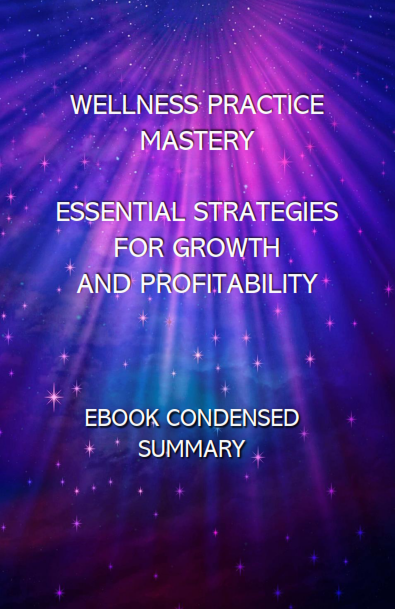Define Systems Before Goals

You’ve probably been told that in order to be productive, you should set goals. Big goals. S.M.A.R.T. goals. Stretch goals. You’ve been told that to achieve anything meaningful, you need to turn it into a goal. Well… Maybe.
While goals can be really helpful, they aren’t always ideal.
The Problem with Goals
Goals have one big problem: they have a termination point. In other words, you’re not successful until you’ve actually reached your goal, and until you’ve reached the goal you might feel like:
- You’re spinning your wheels, not going anywhere.
- You’re a failure.
- You haven’t achieved anything since the goal seems so distant.
Measuring success this way can make you feel defeated, especially if you have big, ambitious goals. For example, if you want to own a Fortune 500 hundred company, nothing you do until you reach that goal will make you feel like you’re succeeding. You may be making incredible strides in your business, but they will fall flat compared to your hard-to-achieve goal.
Since goals have an “end”, you never feel like a success until you’ve actually achieved your goal. And even when you achieve your goal, you simply have to start all over again with the next goal. And the reality is, you might not even know what the “next” goal should be. So, you feel aimless. You know you should be seeking to accomplish something, but you’re not sure what that something should be. Even worse, you might feel like since you already accomplished your goal you can go back to your old habits instead of pushing and growing. You lose all the forward progress that you made. It’s a setup to make you feel like a consistent failure.
The Power of Systems
There is another, better way. It’s called systems. Systems allow you to:
- Make progress on your goals every single day
- Guarantee your success
- Help you reach your milestones
- Avoid the feeling that you’re just spinning your wheels
What are Systems?
Scott Adams, who you may know as the author of the famous Dilbert cartoons, wrote about systems in his book, How to Fail at Almost Everything and Still Win Big: Kind of the Story of My Life. He explained the difference between systems and goals like this: “Losing ten pounds may be a goal, while the system is learning to eat right.”
Here’s an example. Suppose your goal is to generate $50,000 in revenue in the next two months. If you develop a system of making five cold calls every morning to contacts you have met in networking events, you are much more likely of achieving your goal. The system makes it much more likely that you reach the end result.
Using a system doesn’t mean that you have no goals. It just means that you start to focus more on the process than the final destination.
So, What’s Wrong with Goals?
You’ve probably been told your whole life to set lofty goals and work really hard to achieve them. On its face, there’s nothing wrong with having goals. Goals can inspire, motivate, and challenge us. They give us something to look forward to and a reason to continue striving.
But goals can also be rigid and unmoving. Let’s imagine you’ve set a firm goal for your company. You would like to make X amount of sales by a certain date. You really hustle to make those sales and you may actually make a lot of sales. But what happens when you don’t reach your goal amount?
Chances are… …you’ll feel like a failure.
All the sales that you did make won’t bring you joy because you didn’t sell enough. You’ll feel unproductive and you may even want to quit. What’s really unfortunate about this scenario is that you may have missed many opportunities along the way.
Bottom line? Being overly focused on a distant goal can easily give you tunnel vision.
Your determination to complete a singular goal may have kept you from taking the time to develop a new product that could be sold for twice as much.
Scott Adams writes: “…if you focus on one particular goal, your odds of achieving it are better than if you have no goal. But you also miss out on opportunities that might have been far better than your goal…With a system you are less likely to miss one opportunity because you were too focused on another. With a system, you are always scanning for any opportunity.”
Goals Limit Your Threshold for Happiness
The big issue with goals is that you’re so narrowed in on a future time that you aren’t happy until you hit that mark. Once you reach a goal:
- The feeling of happiness will likely fade quickly.
- You’ll then feel the need to achieve the next goal and the next.
- You’re continually chasing something that is, at its best, fleeting.
Productivity expert James Clear has also written extensively about systems versus goals.
In his book, Atomic Habits, he explains: “When you fall in love with the process rather than the product, you don’t have to wait to give yourself permission to be happy. You can be satisfied anytime your system is running. And a system can be successful in many different forms, not just the one you first envision.”
What Happens When You Reach Your Goal?
You may have realized that once you’ve achieved a certain goal, you have nothing else to work towards. For example, suppose you set a personal goal to run a marathon.
In order to achieve your goal:
- You forced yourself to go to the gym four times a week.
- You went running even though you didn’t feel like it.
- You cut things out of your diet even though you didn’t want to.
You worked really hard, but you didn’t enjoy the process that got you there. Once you met your goal, you couldn’t stand the thought of going back to that regimented schedule. Pretty soon, you’ve abandoned your running routine and you’ve gone back to your former lifestyle. Your muscles soften, you put the weight back on, and you can’t stand to look at your running shoes. What went wrong?
You were focused on the goal, but the system was unbearable.
Scott Adams explains that while you can set a goal to exercise three to four times a week on a rigid schedule, if you’re not enjoying the exercise, there’s a much higher risk that you’re going to give it up.
You probably started training for a marathon because you wanted to be healthier and stronger. If you focus on the end result, it will feel like punishment. You may do it for a time, but in the long run, you’ll probably lack the willpower to continue.
Instead, Scott Adams suggests choosing to be active each day to a level that feels good.
In this scenario…
- You’re training yourself that being active is positive.
- You’re going to get a psychological lift from the exercise.
- You’re slowly training your body and mind to enjoy being active as opposed to hating it.
You’ll naturally want to challenge yourself as you continue to enjoy being active more. Your original activity level may start with short, slow walks, but you may eventually find that you like running as well.
You’ll do so because you want to, and not because you’re forcing yourself to.
How Do Systems Help Entrepreneurs?
First and foremost, systems are much more flexible than goals. If you have a type A personality, this shift may make you feel a little uncomfortable at first. It may feel like you’re giving up control by not focusing so much energy on a future outcome.
The big question to ask yourself is, What happens when you shift your focus from a concrete goal to the process that gets you there? If you’re focused on the system, does that mean you’re abandoning your goals and wandering aimlessly? The short answer is: no. Here’s why.
Suppose a sports coach chooses to focus on picking great players, developing incredible plays, and creating effective practice routines instead of winning. What would be the result? They’ll probably have a winning team.
James Clear writes: “Every Olympian wants to win a gold medal. Every candidate wants to get the job. And if successful and unsuccessful people share the same goals, then the goal cannot be what differentiates the winners from the losers…The goal had always been there. It was only when they implemented a system of continuous small improvements that they achieved a different outcome.”
In order for your business to be successful, it’s vital to understand what is working and what isn’t working in your process.
Think about the things in your system that are working and the things that are not.
What does your hiring process look like?
- Do you have strong employees that fit your vision?
- If not, what practices can you change to hire better employees?
Think about your marketing campaign and the system that drives it.
- Is it working?
- What changes can you implement in your system to reach more customers and drive more business?
Now think about your products or services and the systems you have in place to support them.
- What can you do to improve your product?
- How can you streamline the process and make things more efficient?
- Are your products or services testing well?
- If not, what can you do to improve them?
These small, day-to-day improvements will make you feel successful, fulfilled, and productive. Learning how to push through daily struggles will bring you confidence and happiness in a way that hard-to-reach goals never will.
A system teaches you how to become better at what you do, and it greatly develops your skill level. If something isn’t working well, you have the flexibility to change it and move on.
You still have the skills that you developed, but you can now use them in a new direction.
That’s the gift of a system.
About the Author
Bernadette Donnelly is a Marketing Communications Coach who works with small business owneres who want to make a big difference. She helps her clients to communicate their story to their ideal clients in their preferred style. Her clients build their businesses while living a full and balanced life.
- Bernadette is a published author and a seasoned non-fiction writer of books, ebooks, training manuals, and marketing literature.
- She is a Master Neuro-Linguistic Programmer, and she is trained in Hypnosis, Reiki, and Health Kinesiology.
- Bernadette is a published author and a seasoned non-fiction writer of books, ebooks, training manuals, and marketing literature.
- She is a Master Neuro-Linguistic Programmer, and she is trained in Hypnosis, Reiki, and Health Kinesiology.
To find out how Bernadette can help you to grow your business to 6-figures or more, get in touch.
